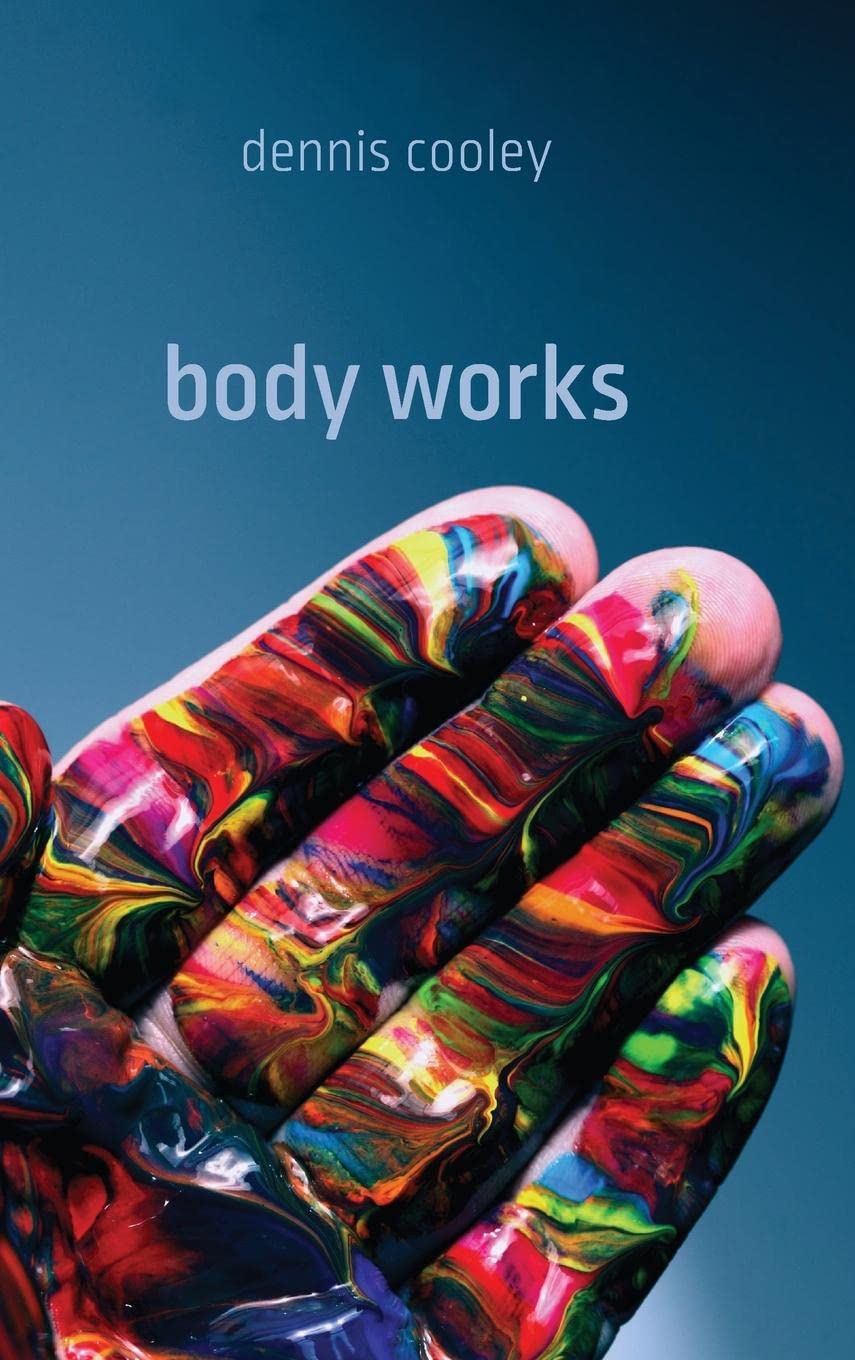“Serious art is born from serious play.” This quote from Julia Cameron’s The Artist’s Way epitomizes the poems in Dennis Cooley’s latest book, body works, in which he continues to write with a playfulness that has produced a rich oeuvre of poetry spanning the last five decades. Built from the machinery of the body—its clicks, spasms, and grunts—but also its soft tissue—its loves, moods, and imaginings—body works is a robust volume of poetry that explores every nook and cranny of what it means to be a human. Cooley puts his finger on the pulse of mortality—the drip-drip of time, the “perturbations of the heart,” and the aches and pains of aging joints—but he also goes further in and further out, writing about the salt in our cells and a fishmonger selling squid in Spain.

Cooley’s poems slip and skip around the page, both visually and acoustically. He makes a canvas of the page, splashing words with the gusto of an abstract painter, and inside the lines there’s a delightful music. Each time I reread one of his poems, I catch another allusion, another sonic echo, another glint of joy. Here’s the last stanza of “you could hear,” a poem that exemplifies his playfulness and humour for both eye and ear: “at every juncture / a tick of bones / a time every / morning to spell / crick, crackle, //, & pop.” Cooley’s poems crackle and pop like that final playful reference to the popular breakfast cereal, which doubles as the visceral experience and the sounds an older person makes getting out of bed in the morning.
The power of Cooley’s “serious play” is that it allows him to uncover the deeper elements of human existence. He has what psychologists call flow, that ability to move with the experience of writing almost unconsciously, without imposing his ego or control on the work. In “travelling light,” where the husband earlier in the poem yanks a scarf through his sleeve, Cooley delivers these beautiful lines: “as if time / did not go / all the way through— //as if we were not / fireflies in a jar— / or the breath of gravity.”
Cooley’s willingness to experiment is impressive. Examples include “to speak in the place of,” and in “quite the you.” In “the times are out of joint,” he plays with some lines from the Lord’s prayer: “O cur said, /spite our sad fat /her who art / right is hollow / wed wld be they game / the whole creat /ion the hole / crate & ka boo / dull—failing.”
This is just one way Cooley shows his virtuosity with experimentation; there isn’t room to itemize them all here. Cooley is one of the few poets who can get away with clichés. Consider the poem, “body parts,” which has “Mike & Gabe & Zeke & me” looking for body parts the way one might a wrecking yard: “yeahyeahyeah back there / look i ain’t gonna wait on yuh hand & foot” says Pete who’s “workin’ / for The Man, crams all this stuff / into a big bag of skin.” This is a masterful poem that speaks powerfully of the human condition, in a collection of poems where “we done our best since, / but you got / to forgive me— // i can’t help wondering / about all those hearts.”
Bios
Al Rempel
Al Rempel’s latest book of poetry is Undiscovered Country. He has two previous books and a few chapbooks, most recently, Behind the Bladed Green. Rempel’s poems have also appeared in various journals, anthologies, and videopoems. He can be found at alrempel.com [updated January 2023]

